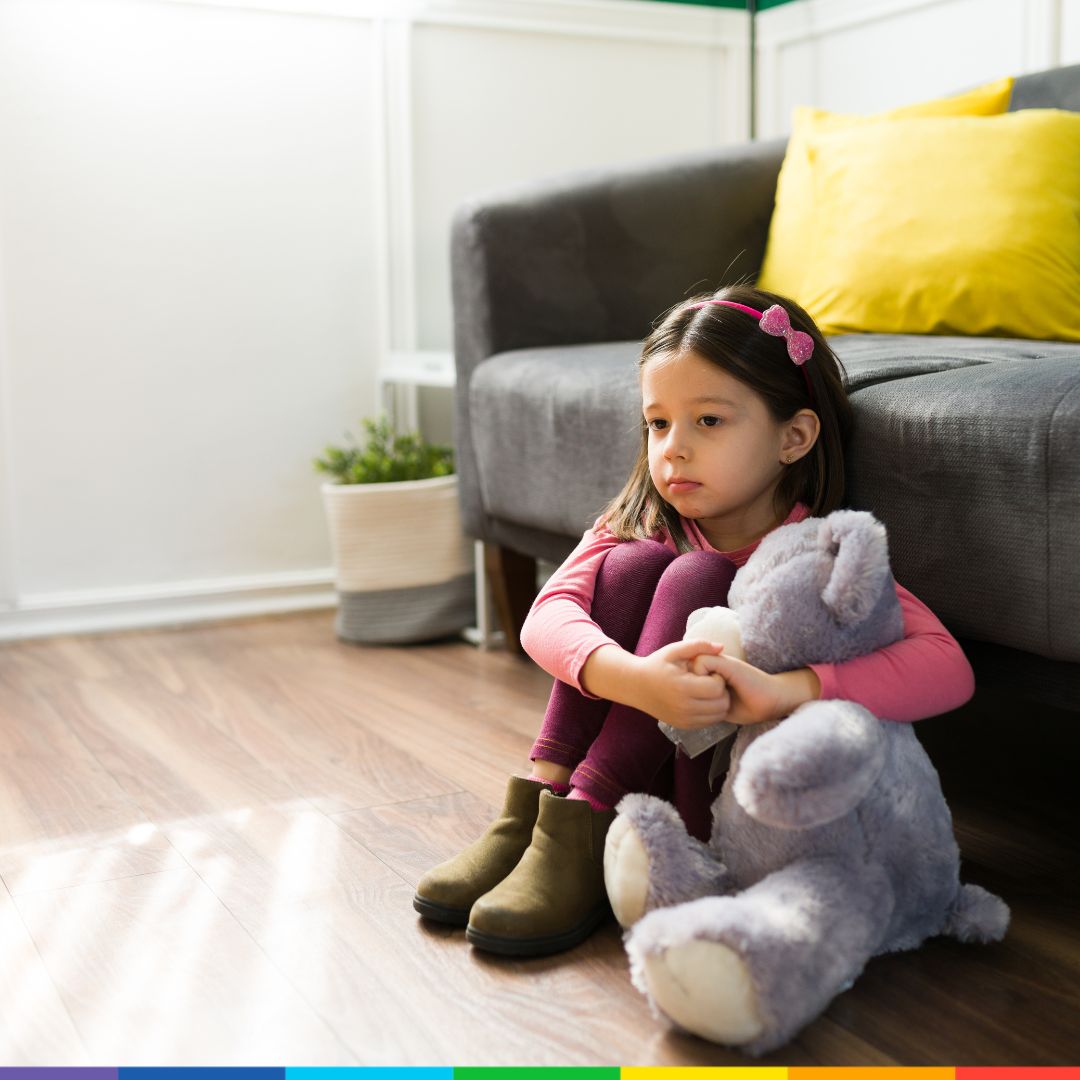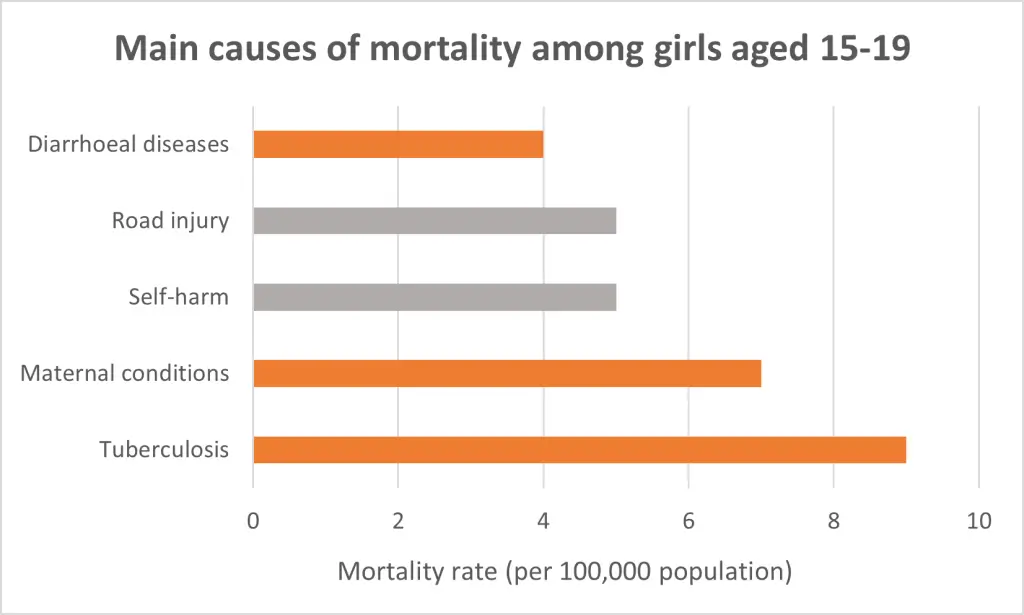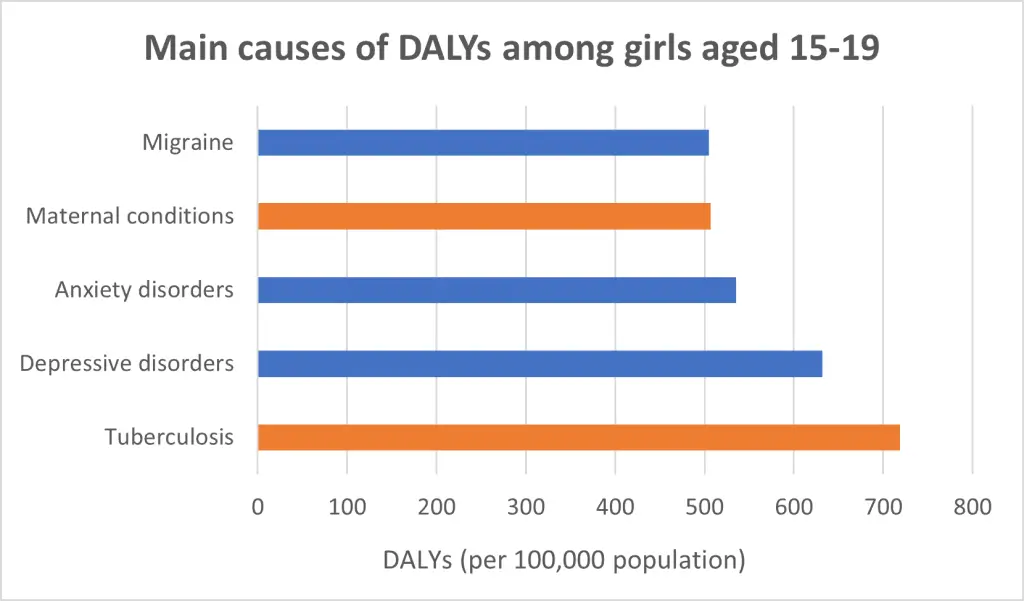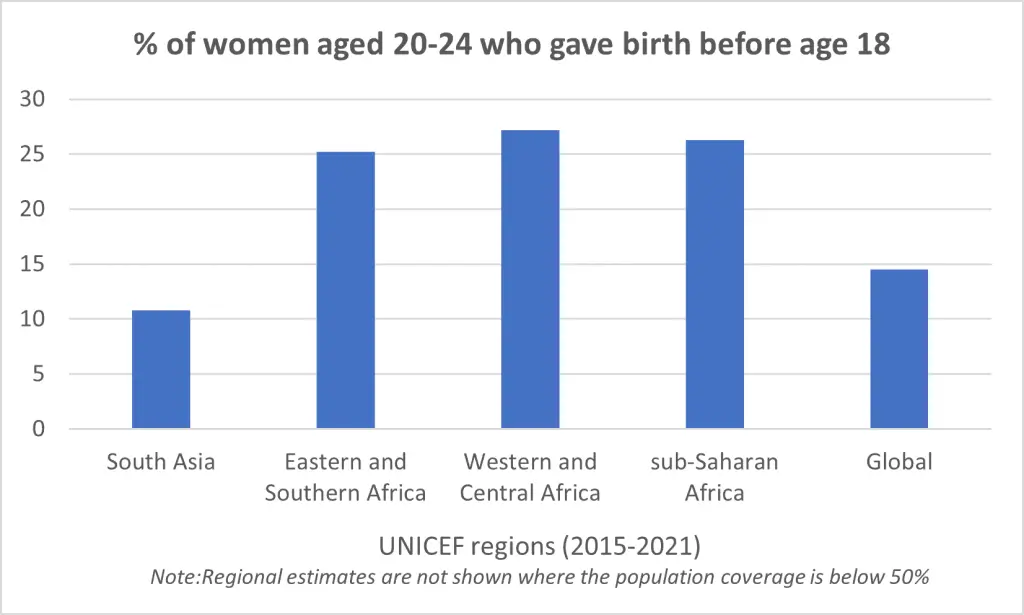
Parenting Tips
Teen Sexuality – How to Guide your Child Right?
December 8, 2022
Related
Topics

Hey
-

Big Feelings – Helping Kids Handle Them : Best Tips 101
February 25, 2026
-

How to Build Confidence in Shy Kids: 12 Evidence-Based Tips
January 26, 2026
-

How to Teach Emotional Regulation to Kids (Aged 3–8)
January 15, 2026
-

5 Ways to Nurture SEL at Home (Fun Activities)
January 1, 2026
-

How Early Social Emotional Learning Help in Successful Life?
December 11, 2025
Ready for more?
Hey
Sign up for Rainbow Kiddies newsletters for more stories and updates
Teen sexuality is a topic that gets spoken in hushed voices – Why? Let us get rid of this stigma right away. As a parent there is a lot you can, and should do for your child when it comes to sex education. To start with, understand that this is one area where they really need your advice and guidance. Else it could have long lasting effects on their present and future lives.
Read on to know more….
- Teen Sexuality – Let us Start with the Numbers First
- Understanding Adolescence and Sexuality
- Factors Influencing Teen Sexuality
- Misconceptions About Boys & Girls
- Talking to Your Children
- Before Winding Up, Here are Some Benefits of Responsible Dating
- Summing Up Again – One Last Time!
Teen Sexuality – Let us Start with the Numbers First
Globally about 1 in 6 young women give birth before they turn 18.
As per the data published by UNICEF, globally, between 2015-2020, an estimated 15 per cent of young women gave birth before they turned 18. Early pregnancy and delivery will not just affect their physical development and health. It will also have a huge impact on their education, mental wellbeing, and livelihoods.
In fact, as per WHO Global Health Estimates 2019 (shown below), maternal conditions is one of the top causes of disability-adjusted life years (DALYs) and mortality among girls aged 15-19 years. (DALYs for a disease or health condition is the sum of years of life lost to premature mortality and years lived with a disability, owing to that disease or health condition.)


Source: WHO Global Health Estimates 2019: Causes of mortality and DALYs by cause, age, sex, by country and by region, 2000–2019 Geneva; 2019.
As per UNICEF, adolescent birth rates have been found to be lowest in European and North American regions, and highest in Western, Central, and sub-Saharan Africa (see the graph below).

Source: United Nations, Department of Economic and Social Affairs, Population Division (2021). World Population Prospects.
Some More Numbers & Facts Relating to Teen Sexuality
Meanwhile data by UNICEF also shows that there has been a decline of almost 20% in adolescent birth rates from 2000-2005 to 2015-2020. This can further be attributed to the decline in regional numbers as well. These numbers have declined by almost 60% in South Asia, North America, and Western Europe.
UNICEF also stresses that adolescent girls make less contact with healthcare systems for antenatal, delivery and postnatal care. This could have a lasting impact on their own health and that of their child’s.
Another danger lurking for teenagers (irrespective of gender) who indulge in unprotected sex is a whole bunch of sexually transmitted diseases. Some of these could be even fatal. It could happen to anyone. Since teenagers have more to look forward to and are still under the protection/ care of their parents, this is something for parents and teens to take notice of and be careful about.
Further there is the danger of sexual abuse and date rapes. Sexual abuse makes it really important to educate children about bad touch and inappropriate behaviors when they are as young as 4 or 5 years old itself.
Understanding Adolescence and Teen Sexuality
Let us start by breaking down adolescence into 2 stages:
- Early adolescence – from age 12 to 15 is usually marked by curiosity and urge to experiment. Children start showing more interest in topics relating to sexuality. They may try to access such information over whatever media might be available, like television, internet, etc. Boys might experience ejections when they feel sexually excited, and it is a perfectly normal thing. Similarly, girls might produce vaginal secretions for no obvious reason at all. They might also try talking about sex-related matters with their peers, and others can confide in.
- Middle to late adolescence – from age 15 to 22 is usually marked by the urge to form romantic relationships. At this stage, girls tend to be more concerned about consequences of sexual activity. Meanwhile, both boys and girls fantasize about sexual acts and wonder about the limitations. This is a time when some genuine guidance would really help.
Factors Influencing Teen Sexuality
Personal and Interpersonal
- Degree of impulsive behavior
- Ability to delay gratification
- Outlook about casual sex like one-night stands
- Lack or presence of academic goals
- Religious beliefs
- Peer pressure
- Need for emotional attachment and
- Recognition by someone or in a group
Parental Influence
When parents are overly strict, children might tend to express autonomy and defiance just to provoke or humiliate them. Whereas, having close relationship with parents have been shown to delay sexual activity in children.
Misconceptions About Boys & Girls Impact Teen Sexuality
Pause and think about majority of the stories for children, especially fairy tales (which children love). You will realize that girls are portrayed as highly emotional, nice, kind, and dependent beings who easily fall in love and are incapable of saving themselves without a boy’s support.
Further, the moment girls start watching screen they are lured into using makeup and doing dress. Thanks to the umpteen child influencers that we have today. Even girls as young as 3 years old feel the need for makeup. They feel that they cannot look attractive otherwise and that it is important to look attractive. Even if you care enough as parents to not instill such ideas in your children, the society and their peers will do it for you.
On the other hand, boys are often portrayed as being rough, and incapable of controlling their urges, themselves, or even their hormones. If you take movies, especially commercial Indian movies, you will often see a boy pursue a girl until she falls for him, even if he belongs in the trash bin.
Boys are always shown as needing to be respected and obeyed. Often, they are even portrayed as beings who cannot be questioned or argued with. Majority of the families, media and even workplaces do enough to uphold these messy misconceptions. By doing this they keep making things worse for all genders.
Be That Change Agent
These misconceptions are going to expire only when we change our mindsets, stop reading/showing those outdated fairy tales and movies to our children and move on to create an equal space for all genders in our society. Children who grow up with such misconceptions feel that boys can demand, girls must be submissive or that boys are allowed to ogle when a girl looks attractive, and so on.
Instead teach them to respect each other, and also about how people cannot be stereotyped based on gender. Teach them good habits and values so they will grow up to be healthy physically and emotionally. Give them equal opportunities and privileges so that they can excel in their lives. Let them not get stuck up in any kind of negativity about themselves or the world around them. Let us create a future that will be safe for everyone, and not a threat.
Now, that was about how you should not differentiate between genders, to start with. If you do this, half your job is done as a good parent. Then comes the next stage where you must gain their trust and be able to even discuss love, sex, and courtship with them.
Talking to Your Children

Be aware that many children are forced to do sexual acts at a much younger age than you might imagine. Each generation is far ahead of the earlier ones and it is applicable in this context too. Starting from a very young age they would want advice on how to be assertive, say no and to mark or define their limits.
A lot of children give in to such situations due to peer pressure, worries that they will hurt someone or be looked down upon for not being game enough, etc. They should be taught clearly that it is perfectly fine to define their boundaries and say no. There is nothing rude or bad about it. It is their basic right as a human being.
As we have always stressed, freedom of expression with parents can go a long way when it comes to a child’s wellbeing. This will also help teenagers who are exploring their sexuality.
It is very important for at least one parent to have a very close and strong bond with the child. For this, listen to them without judging, acknowledge their emotions, help them find solutions rather than provide readymade solutions, talk to them openly, share your issues and daily matters with them, trust them and have open conversations with them. This will in turn help them to trust you and discuss their issues and daily matters with you. When you try to be a friend to your teenager, be that much needed friend who they can confide in and trust fully.
Basic Sex Education for Young Children
Children, when as small as 4- or 5-years-old might start asking about genital organs. Tell them what they are and how it is different for boys and girls. Answer their questions and clear their doubts. By doing so they will not end up peeping at someone or indulge in inappropriate behavior due to curiosity.
Also, tell them about bad touch, and ask them to talk to you if they have any such experiences. You could probably pick a doll and explain which areas of their body cannot be touched by other people. Let them know that it is not alright if anyone puts their hand inside their clothes or underwear, whether it be anyone at home or outside. Let them know that such people could harm them, and that they must be careful.
Tell them that they must tell you when anyone touches them inappropriately. Tell them clearly that they should also never touch anyone’s private body parts. Also tell them that it is ok if the parents touch those body parts while helping them clean up or shower, otherwise they might report against you. The whole point is to be very clear while you explain.
If you do not feel confident about explaining all this to them, watch this video on bad touch for kids with them.
Educating Older Children
Firstly, know that relationships should be the basis of all talks about sex. This way they will know that sex is something that happens after you are in a safe and happy relationship, and not before that. Now let us look at the why, when, how, and what questions one by one.
Why?
Be clear about your own sexual values before you talk about sex to older children. Be clear and specific when you talk to them. Keep an objective mindset and try not to fidget or seem embarrassed. You could even tell them that the conditions in which you were brought up were different and that you never discussed sex with your parents. But let them know that they can talk with you about sex or any related matter any time they want to. This will stop them from relying on distorted information shared by friends or that which is available in the media.
Also know that most studies show that children who have discussed sex with their parents tend to wait longer before they start to have sex. They are also more likely to stick to the rules and values defined by their parents. Now that tells you WHY you should discuss sex with your child.
When?
Now comes the when question. Most schools these days provide sex education. You could start your conversation about sex by asking what they learnt in that class and fill up wherever required. Else you could talk to them when they start coming up with doubts on sexuality or related topics. Some children never discuss such topics at home. You could take the initiative and start a discussion after watching a romantic movie together.
If none of this works you should at least bring up this topic when you start noticing physical changes in your child, like development of breasts, facial hair, change in voice or features, etc. Well, the right time is your choice, but ensure that you do talk to them for sure.
How?
Next, remember that it is not a topic which can be covered in a single sitting. Then how do you go about it? Take your time and do it at your own pace. Remember to also touch upon the psychological and emotional aspects of it (and maybe even religious aspects, depending on your sexual values). Meanwhile, ensure that you do not make them think that sex is bad or dirty. Such children tend to have negative feelings about sex, and this could impact their relationships in the future.
What? – This is Where this Post gets Lengthy
Basics of Relationships
Most importantly, remember that talking about sex is discussing about relationships. Let them know that relationships are built on the trust between two people. Teach them to have trust in themselves first, know their needs and accordingly get into the right relationships at the right time and only then consider sex. Stress on the fact that a partner who pressurizes them into doing stuff that they are not yet ready for, is simply not the right choice for them.
Importance of Education
Explain to children why education is good and important. Tell them about options that are more attractive than teenage parenthood, pregnancy, or abortion. Also let them know that dating is for people who are responsible and know their limits clearly. Such people will never tolerate inappropriate behavior while in a relationship. Help them differentiate between unrealistic and realistic expectations in a relationship.
Assertiveness and Basic Rights
Discourage dating people who are way older or younger than them. This is good for all genders in general. For instance, if your teenager is dating a teacher, explain to them clearly why it could be inappropriate. It would not just impact their studies, but they might be unable to use any assertiveness techniques there, since there might be repercussions.
Also discourage dating people who they barely know, or have met only virtually. Tell them about sexual and cyber abuse, that it can happen to any gender. Also let them know that if it happens to them, they should never hold themselves accountable for it. They should also speak to you or any other trusted adult about it, so you can help and support them through it.
Teach them to trust their intuitions and to be assertive. Help them act quickly when they feel that somebody is crossing their limits. Such measures will help them say ‘No’ without any doubt or worries. Let them know that there is absolutely no need to justify themselves in such situations. They can simply say ‘No’ and there is no need to feel bad or sad. They are just exercising their basic rights by protecting themselves. Teach your child assertiveness.
Safe Sex Complications
You could even tell them basic stuff like condoms not being completely safe, contraceptives having long-lasting side effects for youngsters, etc. Also educate them about some of the aftereffects of abortion which are called post-abortion stress syndrome. Abortion could result in causing some long-lasting emotions and conditions like shame, anger, guilt, depression, regret, secrecy, stigma, loneliness, diffidence, insomnia, nightmares, relationship issues, suicidal thoughts, etc.
Most countries require parental consent for conducting abortions, but some do not. Either way let them know that they should inform you if any such thing happens and that you will help them stride through the phase. Also tell them clearly how you might feel if something like that happens. For this you need to be clear about you own sexual values first.
Screen & Media Exposure
Tell them that what they see in the media is an exaggerated version of reality almost always, and especially in the case of sex. Openly discuss with them about this so you know what they are thinking. If they fantasize about what they have been watching, give examples of how things are going to be different in real life.
You could give examples from your own life or from the life of that friend you had in college or at work. For instance, you could tell them your friend had similar fantasies, but after genuinely falling in love with someone he or she realized that respect for each other and trust is much more important than fulfilling those fantasies, and so on.
You could also tell them that what they watch on screen is all scripted and staged. Real life would never be the same, or even close. Read our post on screen time to understand how you can manage and check what your children are watching, reading, or listening to.
Talk about Regrets
Also, if they have regrets about past hook ups or relationships get them to talk about it as if to a friend. Assure them that if they apply the lesson learnt, it will not impact or burden their future life, or education. Let them not fret too much due to negativity from such regrets.
Quick Tips for Teenagers to Date Safely
Having said all the above, it is quite possible that your teenager will venture into dating at some point. So in addition to the above, parents could share tips like the ones given below with their teenagers and explain why each one of them is important. State clearly what are the dos and don’ts when outside or at a party.
- Know safe limits, know and accept that ‘No’ means ‘No’. If you are dating someone who does not get it, you are definitely with the wrong person.
- Meet in public places and stay around other people while on a date.
- Inform parents or any trustworthy adult about the venue, date, time of meeting, and by when you will be back.
- Go to parties with trustworthy friends and look out for each other.
- Avoid abusive substances like drugs and alcohol. Discuss how such usage could impact their ability to respond or act/ think appropriately and quickly. If they are keen about drinking, they could do it with you at an appropriate age. This way they will not feel the need to do it with the wrong people. Tell them clearly how you feel or think about this matter though.
To sum it all up, all of the above things can be done only when you have a very close and strong bond with your child starting from when they are very young. Have a look at our parenting tips to embark on your journey right away.
Before Winding Up, Here are Some Benefits of Responsible Dating
- It could help teens understand about themselves, others, and relationships. It could even help them understand their sexual orientation sometimes. For some it could be a way to learn interaction with opposite sex, especially for children who have been brought up in secluded environments like boys-only or girls-only schools, etc.
- It could give them an idea about how actual relationships work and how relationship issues can be fixed.
- The right company could help them heal and feel good about themselves, and sometimes even do better or excel in life.
- It could also be an opportunity to learn self-control and delay of gratification. Further, it could improve self-esteem for some people.
Summing Up Again – One Last Time!
We parents believe that kids learn from us and our behaviors. When it comes to sex, there is a certain level of secrecy associated with it. They would not know about our sexual values until and unless we talk to them about it openly. Parents might fear resistance. But know that the consequences might be even worse if you do not have such conversations.
So, start building the bond with your little one, help them define those rules and boundaries for themselves and help them stay safe and healthy. It would be much better for them to define it with you rather than with someone who has nothing to do with your family or values. They really need your advice on this one. You know you have done it right when they start clearing their sex-related queries with you.
Happy parenting!
Sign Up for your Free Parenting Guide: “10 Everyday Ways to Raise an Emotionally Strong Child”




